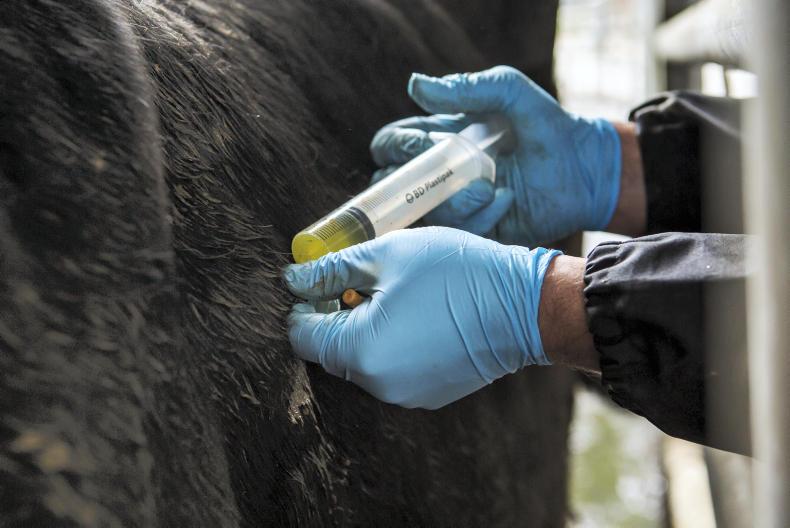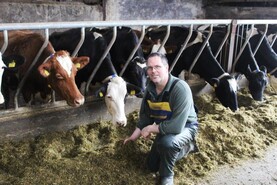Vets are reporting multiple animal health problems among housed cattle due to the ongoing fodder crisis.
They say displaced abomasums (LDAs), body condition scores, pneumonia and calf scours are the most common problems seen on farms around the country. Stretching fodder and feeding more concentrates is putting huge pressure on milking cows and they just aren’t producing, according to Tipperary-based vet Kieran O’Mahony.
“It’s like asking a person to run a marathon on a bag of chips, it’s not sustainable.”
This will have a knock-on effect on the upcoming breeding season, according to vet Donal Murphy from Rathmore, Co Kerry.
“The fodder situation is leading to a lot of poorly fed cows, which will cause this breeding season to be pushed back by up to three weeks.”
Time, bedding and fodder pressure are also leading to increased cases of scour, septicaemia and pneumonia.
John McAloon, of Farrelly’s vet surgeons in Co Meath, said autumn-calving herds’ empty rates are as high as 50% on some individual farms.
He also warned that dietary changes could disrupt the breeding season even further as “a cow’s diet should be settled at least one month prior to the beginning of AI”.
Read more
Coughing calves and dirty tails - how to control disease pressure
Tullamore Farm: health issues so far
Vets are reporting multiple animal health problems among housed cattle due to the ongoing fodder crisis.
They say displaced abomasums (LDAs), body condition scores, pneumonia and calf scours are the most common problems seen on farms around the country. Stretching fodder and feeding more concentrates is putting huge pressure on milking cows and they just aren’t producing, according to Tipperary-based vet Kieran O’Mahony.
“It’s like asking a person to run a marathon on a bag of chips, it’s not sustainable.”
This will have a knock-on effect on the upcoming breeding season, according to vet Donal Murphy from Rathmore, Co Kerry.
“The fodder situation is leading to a lot of poorly fed cows, which will cause this breeding season to be pushed back by up to three weeks.”
Time, bedding and fodder pressure are also leading to increased cases of scour, septicaemia and pneumonia.
John McAloon, of Farrelly’s vet surgeons in Co Meath, said autumn-calving herds’ empty rates are as high as 50% on some individual farms.
He also warned that dietary changes could disrupt the breeding season even further as “a cow’s diet should be settled at least one month prior to the beginning of AI”.
Read more
Coughing calves and dirty tails - how to control disease pressure
Tullamore Farm: health issues so far






 This is a subscriber-only article
This is a subscriber-only article










SHARING OPTIONS: